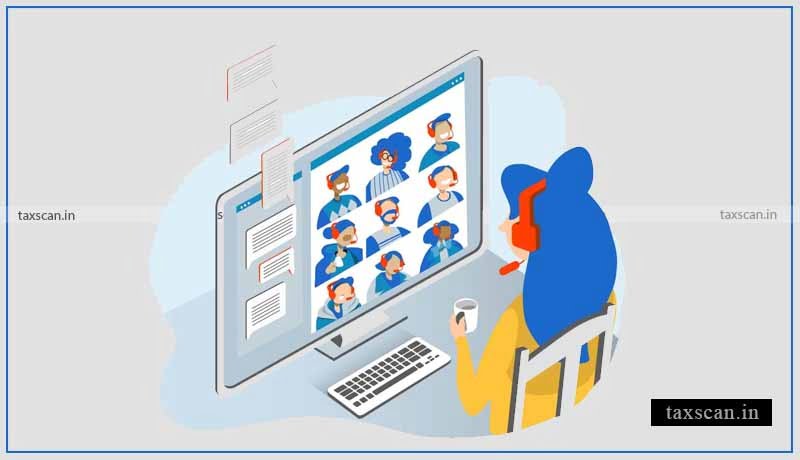Delhi High Court issues Video-Conferencing Rules to streamline and consolidate process and its usage in Courts

Delhi High Court – video conferencing -Taxscan
Delhi High Court – video conferencing -Taxscan
The Delhi High Court on Monday notifies the Rules to consolidate, unify and streamline the procedure relating to the use of video conferencing in courts.
The Rules are to be called as 'High Court of Delhi Rules for Video Conferencing for Courts 2020' and shall come into effect from today, June 1st itself.
“These Rules shall apply to such courts or proceedings or classes of courts or proceedings and on and from such date as the High Court may notify in this behalf,” the notification said.
The Rules govern all major aspects of the Court's functioning which includes service of summons, the examination of persons, exhibiting documents to witness or accused at a remote point, judicial remand, framing of charge, the examination of accused and proceedings under Section 164 of the CrPC.
The general principles governing video conferencing, the rules say that all proceedings conducted by a court via video conferencing shall be judicial proceedings and all the courtesies and protocols applicable to a physical Court shall apply to these virtual proceedings.
Rules say that video conferencing facilities may be used at all stages of judicial proceedings.
All relevant statutory provisions applicable to judicial proceedings including provisions of the CPC, CrPC, Contempt of Courts Act, 1971, Indian Evidence Act, 1872 (Evidence Act), and Information Technology Act, 2000 (IT Act), shall apply to proceedings conducted by video conferencing. It says that Courts may adopt such technological advances as may become available from time to time.
As per the video conferencing rules, unauthorized recording of the proceedings by any person or entity shall not be allowed. Identity proof as recognized by the government of India/state government/Union Territory shall be valid and may be sent to the court point coordinator via personal email.
The rules recommend Desktop, Laptop, mobile devices with internet connectivity and printer; device ensuring uninterrupted power supply; camera; Microphones and speakers; Display unit; Document visualizer; Provision of a firewall; Adequate seating arrangements ensuring privacy; Adequate lighting; and Availability of quiet and secure space facilities for conducting proceedings by video conferencing at the Court Point and the Remote Point.
Video conferencing rules say that there shall be a coordinator both at the court point and at the Remote Point from which any required person is to be examined or heard. The coordinators at both the court point and remote point shall ensure that the recommended requirements are complied with so that the proceedings are conducted seamlessly.
All participants’ cell phones shall remain switched off or in airplane mode during the proceedings.
In criminal cases, the expenses of the video conferencing facility shall be borne by such parties as directed by the court. In civil cases, generally, the party requesting for recording evidence through video conferencing shall bear the expenses.
“To observe the requirement of an open court proceeding, members of the public will be allowed to view court hearings conducted through video conferencing, except proceedings ordered for reasons recorded in writing to be conducted in-camera. The court shall endeavor to make available sufficient links (consistent with available bandwidth) for accessing the proceedings,” the rules said.
To Read the full text of the Rules CLICK HERE

